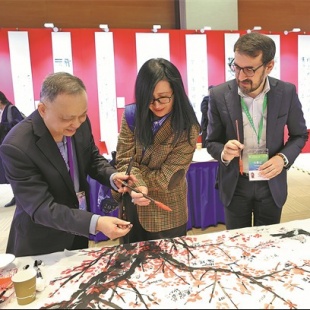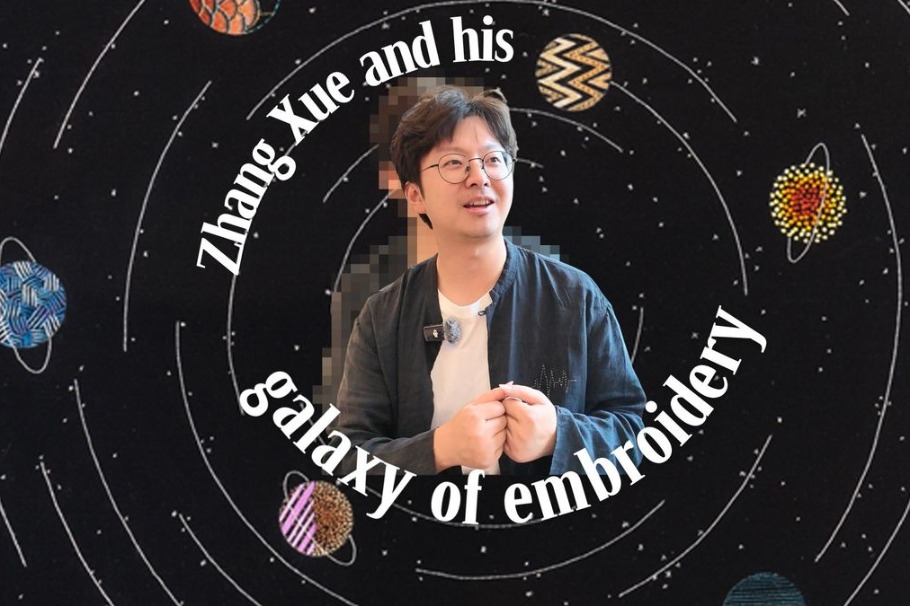A cup full of meaning
The character for tea embodies philosophy and heritage, proving language can be steeped just like leaves, Zhao Xu reports.


Another whose fascination with Chinese culture led him to learn the language is Oliver Harding, director of the Confucius Institute in Sierra Leone, one of the few English-speaking countries in West Africa. "I am a musician and painter who was captivated by Chinese music before I came to appreciate the country and its language," says Harding, who has since learned to play several traditional Chinese instruments. Both Harding and Tosco were in Beijing for the conference.
According to Wu Cui, the Chinese director of the Sierra Leone institute, Chinese language learning has surged across Africa, driven largely by employment opportunities created by Chinese companies on the continent — firms keen to recruit local staff fluent in the language and familiar with Chinese culture and business etiquette.
"For the past 13 years, since the institute was founded in 2012 as the first of its kind in West Africa, we have offered courses to more than 30,000 learners at all levels of education — including military academies. Many of them have gone on to become Chinese language teachers themselves," she says. "At present, 86 countries around the world have incorporated Chinese into their national curricula, allowing students to study the language consistently and progressively."
Over the course of their studies, many have traveled to China, with Shanghai — an international metropolis renowned for its openness and inclusivity — ranking as their top destination. "At the peak of our international enrollment, before the COVID-19 pandemic, we hosted more than 5,000 international students each year. We have now recovered to about 80 percent of that number," says Chen Zhuofen of Shanghai International Studies University.
One of China's leading institutions for language studies, SISU has long been a gateway for Chinese students eager to engage with the world. Today, it stands among a growing number of Chinese universities offering foreign students the opportunity to experience the country — linguistically, culturally and beyond.

"These students come from more than 100 countries," says Chen, who attended the conference to promote the university's wide range of programs. These include both full-degree courses and short-term programs offered year-round, all designed, in Chen's words, "to give students a real taste of Shanghai — its energy and rhythm" — as a natural extension of their language learning.
"We take them to companies such as Huawei and Shanghai-based automakers to give them a glimpse of Chinese industry; we also bring them into nearby neighborhoods to see firsthand how local communities actively engage non-Chinese residents. While studying in Shanghai, they are not confined to campus — they become part of the city's fabric, a community that thrives on openness and exchange," says Chen. "Our largest groups of international students are from South Korea and Russia; geographic proximity and strong trade relations certainly play a role. But when they begin to share their stories, it always comes back to culture."





































